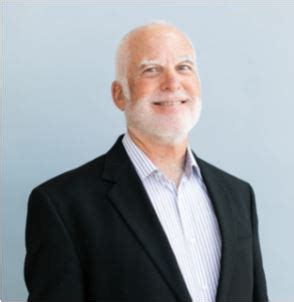A Quote by Victor Hugo
We may remark in passing that to be blind and beloved may, in this world where nothing is perfect, be among the most strangely exquisite forms of happiness. The supreme happiness in life is the assurance of being loved; of being loved for oneself, even in spite of oneself; and this assurance the blind man possesses. In his affliction, to be served is to be caressed. Does he lack anything? no. Possessing love he is not deprived of light. A love, moreover, that is wholly pure. There can be no blindness where there is this certainty.
Quote Topics
Affliction
Among
Anything
Assurance
Being
Being Loved
Beloved
Blind
Blind Man
Blindness
Certainty
Deprived
Does
Even
Exquisite
Forms
Happiness
His
Lack
Life
Life Is
Light
Love
Loved
Man
May
Moreover
Most
Nothing
Nothing Is Perfect
Oneself
Passing
Perfect
Possesses
Possessing
Pure
Remark
Served
Spite
Strangely
Supreme
This World
Wholly
World
Related Quotes
Happiness consists not of having, but of being; not of possessing, but of enjoying. It is a warm glow of the heart at peace with itself. A martyr at the stake may have happiness that a king on his throne might envy. Man is the creator of his own happiness. It is the aroma of life, lived in harmony with high ideals. For what a man has he may be dependent upon others; what he is rests with him alone.
The gospel is the proclamation of free love; the revelation of the boundless charity of God. Nothing less than this will suit our world; nothing else is so likely to touch the heart, to go down to the lowest depths of depraved humanity, as the assurance that the sinner has been loved -- loved by God, loved with a righteous love, loved with a free love that makes no bargain as to merit, or fitness, or goodness.
From the point of view of the Christian faith, man comes in the profoundest sense to himself not through what he does but through what he accepts. He must wait for the gift of love, and love can only be received as a gift... One must wait for it, let it be given to one. And one cannot become wholly man in any other way than by being loved, by letting oneself be loved... If he declines to let himself be presented with the gift, then he destroys himself.
Lack of understanding of the true nature of happiness, it seems to me, is the principal reason why people inflict sufferings on others. They think either that the other's pain may somehow be a cause of happiness for themselves or that their own happiness is more important, regardless of what pain it may cause. But this is shortsighted. No one truly benefits from causing harm to another sentient being. . . . . In the long run causing others misery and infringing their rights to peace and happiness result in anxiety, fear, and suspicion within oneself.
Against the suffering which may come upon one from human relationships the readiest safeguard is voluntary isolation, keeping oneself aloof from other people. The happiness which can be achieved along this path is, as we see, the happiness of quietness. Against the dreaded external world one can only defend oneself by some kind of turning away from it, if one intends to solve the task by oneself.
Man depends on God for all things: God depends on man for one. Without man's love God does not exist as God, only as creator, and love is the one thing no one, not even God himself, can command. It is a free gift or it is nothing. And it is most itself, most free, when it is offered in spite of suffering, of injustice, and of death . . . The justification of the injustice of the universe is not our blind acceptance of God's inexplicable will, nor our trust in God's love, his dark and incomprehensible love, for us, but our human love, notwithstanding anything, for him.
You can give without loving, but you can never love without giving. The great acts of love are done by those who are habitually performing small acts of kindness. We pardon to the extent that we love. Love is knowing that even when you are alone, you will never be lonely again. & great happiness of life is the conviction that we are loved. Loved for ourselves. & even loved in spite of ourselves.
So the best marriages and the deepest relationships with God grow out of the startling discovery that there is nothing one can do to earn love, and even more startling, that there is also nothing one can do to unlearn it, or to keep oneself from being loved. This is a religious awakening that is utterly different from any other religious experience, no matter how profoundly spiritual it may seem.
Unrequited love may be painful, but it is safely painful, because it does not involve inflicting damage on anyone but oneself, a private pain that is as bittersweet as it is self-induced. But as soon as love is reciprocated, one must be prepared to give up the passivity of simply being hurt and take on the responsibility of perpetrating hurt oneself.
A child blind from birth doesn't even know he's blind until someone tells him. Even then he has only the most academic idea of what blindness is; only the formerly sighted have a real grip on the thing. Ben Hanscom had no sense of being lonely because he had never been anything but. If the condition had been new, or more localized, he might have understood, but loneliness both encompassed his life and overreached it.
There are three kinds of love;
unselfish, mutual, and selfish.
The unselfish love is of the highest kind;
The lover only minds the welfare of the beloved and does not care for his own sufferings.
In mutual love the lover not only wants the happiness of his beloved;
but has an eye towards his own happiness also. It is middling.
The selfish love is the lowest. It only looks towards its own happiness,
no matter whether the beloved suffers weal or woe.
Love may, indeed, love the beloved when her beauty is lost: but not because it is lost. Love may forgive all infirmities and love still in spite of them: but Love cannot cease to will their removal. Love is more sensitive than hatred itself to every blemish in the beloved… Of all powers he forgives most, but he condones least: he is pleased with little, but demands all.



































